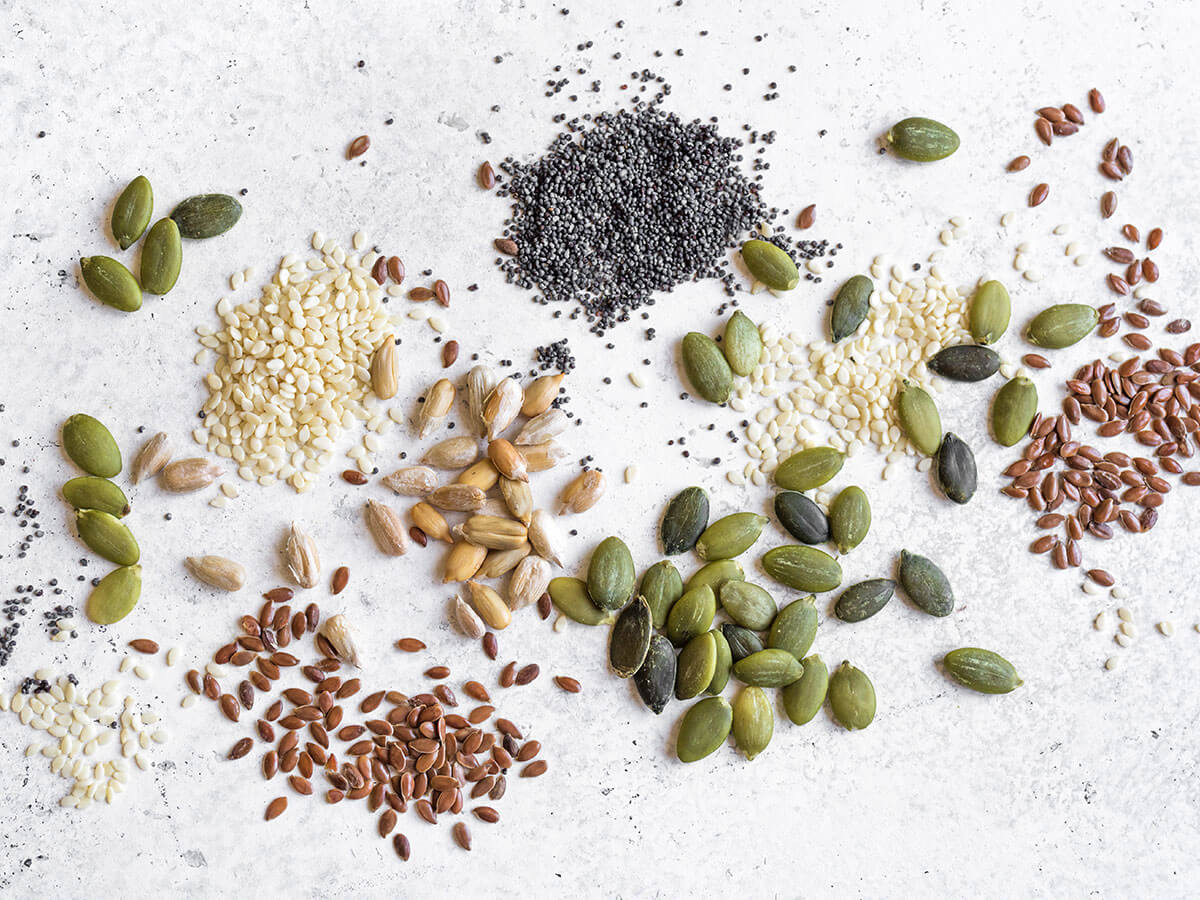 Image Source: Heart Foundation
Image Source: Heart Foundation
Incorporating nutritional seeds such as chia, flax, sesame, and fennel into one’s diet can significantly enhance overall health and well-being. But the timing of consumption plays a crucial role in optimizing their benefits. Experts from leading Indian medical and nutrition institutions emphasize that eating these seeds aligned with the body’s natural digestive rhythms ensures better nutrient absorption and fewer digestive issues. Here is a detailed guide on the ideal times and ways to consume these tiny nutrition powerhouses.
Key Highlights:
-
Chia seeds are best consumed in the morning or pre-workout for sustained energy and stable blood sugar
-
Flax seeds should be taken ground in the morning to reduce gut inflammation and support metabolism
-
Sesame seeds, rich in calcium and magnesium, offer maximum benefits when consumed in the evening or with dinner
-
Fennel seeds work best as a digestive aid when eaten after every meal to relieve bloating and gas
-
Soaking chia and flax seeds activates beneficial enzymes and makes nutrients more bioavailable
-
Moderation is essential; 1–2 tablespoons daily is recommended to avoid digestive discomfort
-
Experts advise against consuming these seeds at random times to prevent bloating and optimize gut health
Chia Seeds: Morning Energy and Blood Sugar Balance
Chia seeds have gained recognition for their richness in omega-3 fatty acids, protein, fiber, and antioxidants that support heart, bone, and brain health. Experts recommend soaking chia seeds in water overnight or for a few hours before consumption to enhance digestion and nutrient availability. Eating them in the morning on an empty stomach or as a pre-workout snack provides a slow, steady release of energy and helps regulate blood sugar levels throughout the day. The high fiber content promotes satiety, curbing cravings, and reducing calorie intake, which aids weight management. Avoid consuming chia seeds late in the day or before bed as they might cause digestive discomfort or interfere with sleep due to their fiber’s gut-stimulating effect.
Flax Seeds: Ground and Early for Gut and Metabolic Support
Flax seeds have a tough outer shell that needs to be ground before eating for proper digestion and nutrient absorption. Rich in lignans, essential fatty acids, and fiber, flax seeds reduce inflammation and support heart, metabolic, and hormonal health. Nutritionists suggest consuming flax seeds in the morning, preferably ground, mixed with breakfast or soaked in water. This timing helps improve bowel regularity, lowers blood sugar levels, and reduces gut inflammation. Some also take flax seeds before bedtime, but morning intake aligns better with metabolism and digestive cycles.
Sesame Seeds: Evening Intake for Bone and Cardiovascular Health
Nutrition experts and Ayurveda practitioners recommend consuming sesame seeds during the evening or with dinner, as these seeds contain high amounts of calcium, magnesium, and healthy fats that support bone density and cardiovascular repair during sleep. Lightly roasting or soaking sesame seeds enhances absorption and digestion. Sesame seeds also contain tryptophan, aiding relaxation and promoting quality sleep. Including 1 to 2 tablespoons daily in evening meals or snacks helps mitigate oxidative stress and supports long-term skeletal health. Overconsumption should be avoided to prevent excess calorie intake and digestive strain.
Fennel Seeds: Post-Meal Digestive Ally
Fennel seeds (saunf), known for their cooling and carminative properties, are best consumed after meals. Chewing half a teaspoon or drinking fennel seed tea helps relax gastrointestinal muscles, reduces bloating and gas, and freshens breath. Regular intake after meals promotes digestion, balances gut flora, and alleviates internal heat, especially in Indian diets that may be heavier or spiced. Roasting or steeping fennel seeds in hot water further enhances their digestive benefits. Moderation is key, with doses around 1/2 teaspoon recommended twice daily.
Expert Insights from AIIMS and Leading GI Specialists
According to AIIMS gastroenterologist Dr. Saurabh Sethi and senior consultant Dr. Adithya V. Naragund, synchronizing seed consumption with natural digestion and metabolic cycles enhances benefits while minimizing discomfort. Soaking chia and flax seeds softens their shells, activates enzymes, and improves nutrient bioavailability, especially when consumed in a fasting morning state. Sesame seeds deliver crucial minerals that aid overnight repair when eaten in the evening. Fennel seeds’ digestive relief is optimized when taken after meals. Experts also caution against exceeding 2 tablespoons per day to avoid bloating, gas, or interference with mineral absorption.
Summary
-
Chia seeds: Morning or pre-workout, soaked, promotes energy, satiety, and blood sugar control
-
Flax seeds: Ground and morning consumption reduces inflammation, improves digestion
-
Sesame seeds: Evening or dinner intake supports bone health, relaxation, and heart function
-
Fennel seeds: After meals for digestion, gas relief, and breath freshness
Incorporating these seeds mindfully into the daily routine can safely amplify their health benefits and support long-term wellness.
Source: IndianExpress.com, Times of India; AIIMS Expert Interviews
Advertisement
Advertisement






